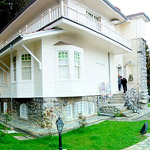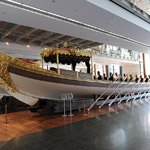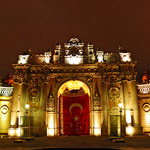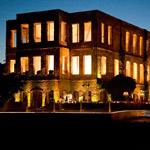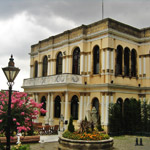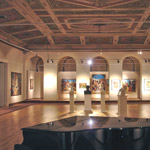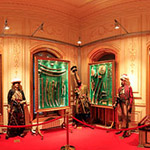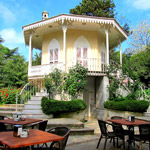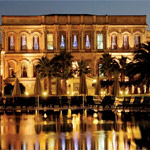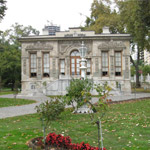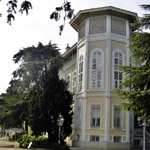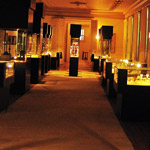Dolmabahçe Palace
The Dolmabahçe Palace, a blend of various European architectural styles, was built between 1843-1856 by Karabet Balyan, the court architect of Sultan Abdulmecid. The Ottoman sultans had many palaces in all ages, but the Topkapi was the official residence until the completion of the Dolmabahce Palace.
The three-storied palace built on a symmetrical plan has 285 rooms and 43 halls. There is a 600 m long quay along the sea and two monumental gates, one of them very ornate, on the land side. Well-kept, beautiful gardens surround this seaside palace. In the middle, there is a large ballroom with a ceiling higher than the other sections. The entrance section of the palace was used for the receptions and meetings of the sultan, and the wing behind the ballroom used as the harem section.
The palace has survived intact with its original decorations, furniture, and the silk carpets and curtains. It surpasses all other palaces in the world in wealth and magnificence.
The walls and the ceilings are covered with paintings by the famous artists of the age and decorations made using tons of gold. All the furnishings in the important rooms and halls are in different shades of the same color. The ornate wooden floors have different designs in each room, and they are covered with the famous silk and wool carpets of Hereke, some of the finest examples of Turkish art.
Rare handmade artifacts from Europe and the Far East'decorate every room in the palace. Brilliant crystal chandeliers, candelabras and fireplaces add to the lavish decor.
The ballroom is the largest of its kind in the world. A 4.5 ton colossal crystal chandelier hangs from the 36 m high dome. The hall, which is used for important political meetings,receptions and balls, was previously heated by an oven-like system under the floor. Central heating and electricity were later additions to the palace.
Of the six baths in the palace, the one in the section reserved for men was made of unique and beautifully carved alabaster.
The upper galleries of the ballroom were reserved for orchestras and the diplomatic corps. Long hallways lead to the harem, where the bedrooms of the sultan and the quarters of his mother, other ladies of the court and the servants were located.
An annex in the north was reserved for the crown prince. The entrance to this building is from Beşiktaş and it now serves as the Museum of Fine Arts.
In the Republican era, Atatürk used to reside in this palace when he visited Istanbul. He died here in 1938 and before his body was taken to Ankara, it was laid in state while the public poured in to pay him their last respects.
Source: Istanbul Valiliği – Istanbul
For further details please check Istanbul Governership Click Here
LOCATION
 Vişnezade Mh.34357 Beşiktaş/İstanbul Turkey
Vişnezade Mh.34357 Beşiktaş/İstanbul Turkey +90 212 236 9000
+90 212 236 9000


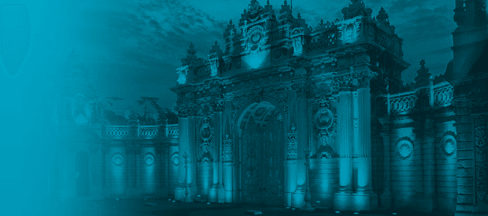














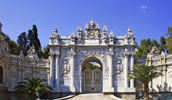



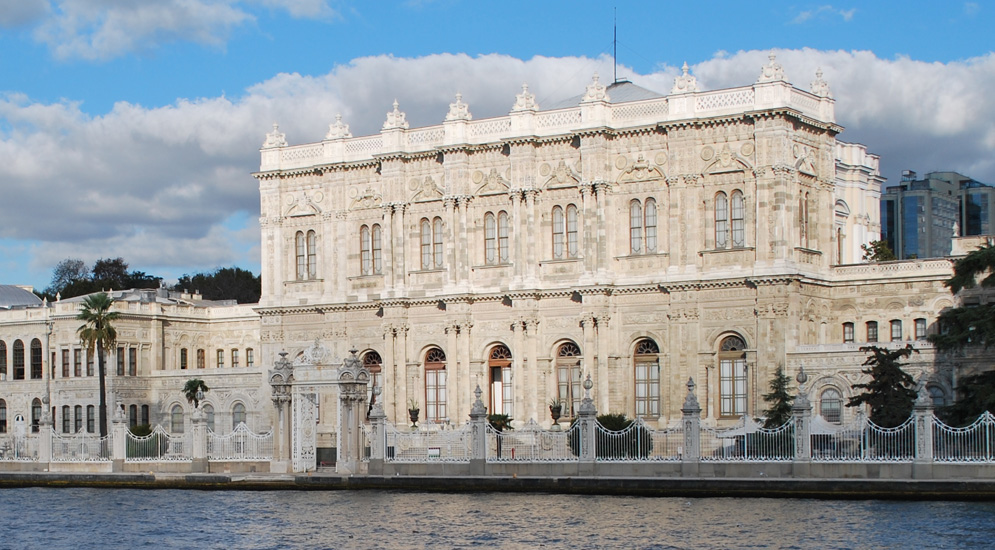
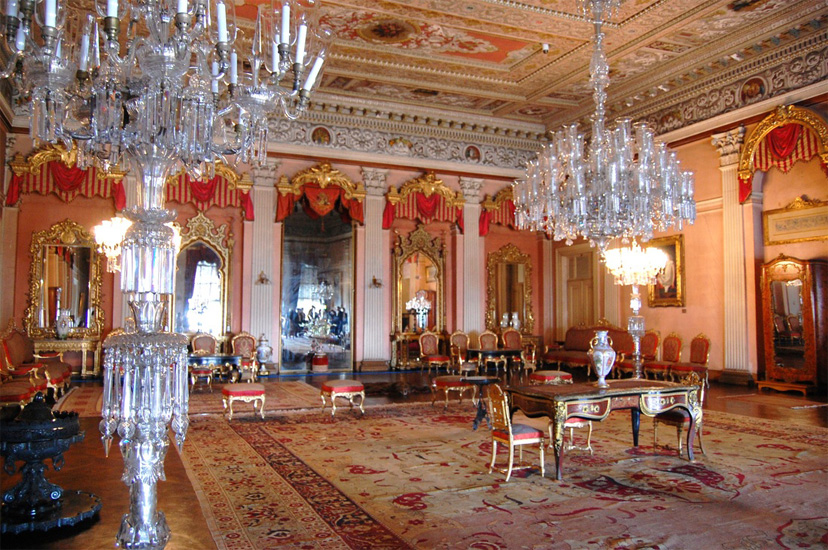

 (1)_420x185.jpg)

